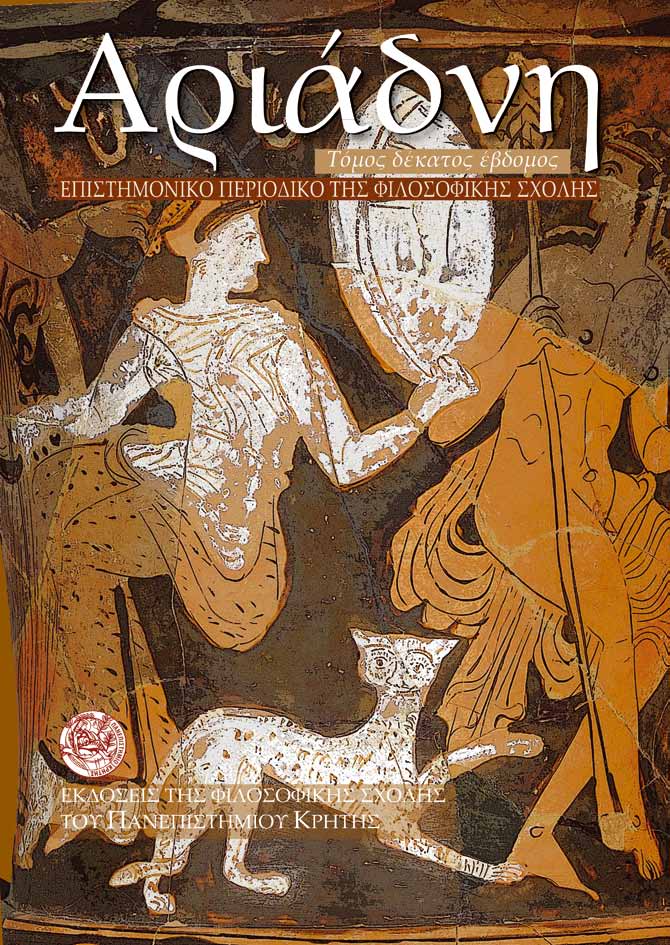Τρεις μεσοπολεμικοί Κύκλωπες
DOI:
https://doi.org/10.26248/ariadne.v17i0.398Περίληψη
THIS ARTICLE examines the presence of the folk element in three different and significant stage productions of Euripides’ Cyclops: Vasilis Rotas’ direction in 1930 in Laiko Theatro Athinon (Athens Folk Theatre), Karolos Koun’s direction in 1932 in Athens College, and, finally, the production of the play in the National Theatre of Greece in 1934, directed by Photos Politis. All the above mentioned directors used the adaption of Alexandros Pallis. His avantgardism was not so easily accepted not only by the critics of his time, but also by the three directors, 25 years later. As Pallis’ work was closer to a new version than to a simple translation of the play, the way that the three directors faced the text and used it for the performance indicates a procedure of fermentation that was taking place in Greece during the Interwar period, involving the formation of national identity in the Greek Theatre.
Λήψεις
Δημοσίευση
Πώς να δημιουργήσετε Αναφορές
Τεύχος
Ενότητα
Άδεια
Οι εργασίες που δημοσιεύονται στο περιοδικό μπορούν να χρησιμοποιηθούν ελεύθερα για μη-εμπορικούς σκοπούς με την προϋπόθεση ότι γίνεται αναφορά στους συγγραφείς και την πρώτη δημοσίευση. Στην περίπτωση που το άρθρο αλλοιωθεί, τροποποιηθεί ή δημιουργηθεί κάτι νέο βασισμένο στο αρχικό, το έργο που θα προκύψει θα μπορεί να διανεμηθεί μόνο με την ίδια ή παρόμοια άδεια (Creative Commons Attribution-NonCommercial-ShareAlike 4.0 International License).


